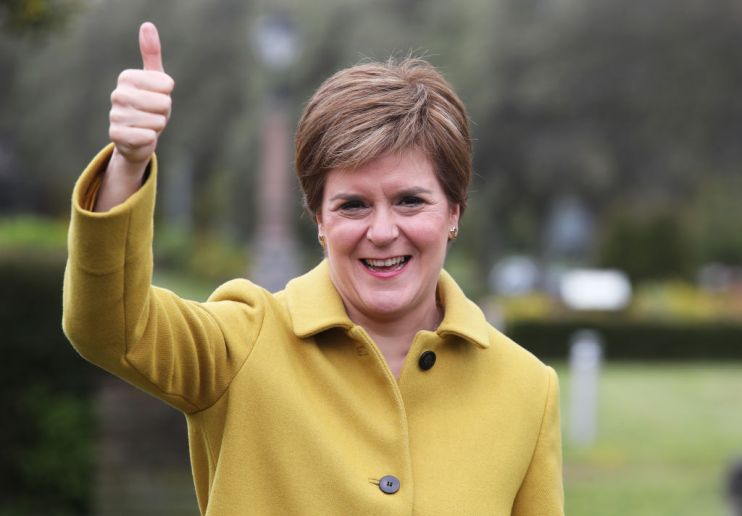Scotland election: Boris Johnson must face down the threat of independence with the spirit of Northern Conservatives

Two things were confirmed by last week’s election result in Scotland: the country is split down the middle on the question of independence and Scots want to keep the prospect of a second independence referendum on the horizon, but no closer than that.
More than two and half million voters took part in the election, half voting for parties of the union and half for parties who want Scotland to be independent. Inevitably, there will be a lot of noise about whether Nicola Sturgeon has a mandate for a second bite at the independence cherry. Both sides will make their case—for and against. She won the election, some will say. Others will retort: she doesn’t have an overall majority.
Both claims are simultaneously true. However, the battle of the mandates is a phoney war, designed to pass the time whilst everybody’s minds are rightly focused on the recovery from Covid. The overwhelming majority of Scots accept that this, and not independence, must be the priority, at least for the time being.
But it is equally the case that Scots do not want to be told by UK ministers, the Supreme Court, or anyone else that they cannot ever have another independence referendum. The 2014 referendum was branded a once-in-a-generation event, and everyone accepted it as such. It’s just that no one thought to define what a generation actually is.
Hence Boris Johnson continually trots out the line “now is not the time” for any repeat referendum on independence. The Prime Minister is carefully not saying never to the SNP and the SNP are sabre-rattling about it, as they always do. For the most part, at the moment, it is just noise.
The more important matter is what the United Kingdom says and does in the meantime to ensure that, if we do ever have to fight the Nationalists in a secession referendum again, we win again, as we did in 2014.
Part of the answer lies in one of England’s most remarkable election results last week: the re-election of Ben Houchen as mayor in Tees Valley, who won his campaign with an astonishing 70 per cent of the vote.
Ben Houchen’s energetic, urban brand of Toryism, backed up with the heft of the Treasury, is both the style and the substance of modern, centre-right politics that the Prime Minister and his team in Scotland need to bring north of the border. The prize may not be the sudden election of a raft of Tory MPs in Scottish seats: it will be more valuable than that. It will be the turning of young and aspirational Scots’ minds away from the lure of independence towards a new understanding of the added value of union.
That is the carrot: spending on infrastructure avowedly targeted at making a material difference to people’s lives. There must also, however, be a stick.
It is true that the UK is held together by consent, and not by the force of law. Nations of the union are free to secede, if that is what they choose. But the consent needs to be informed. And before any repeat referendum on independence can fairly be held, those calling for one need to answer some basic questions. At the top of the list are three: what would the currency of an independent Scotland be? What conditions would be attached to EU accession if an independent Scotland sought to become a Member State? And what consequences would that have for Scotland’s land and sea borders with the rest of the UK.
No responsible UK government should accede to any Nationalist demand for a repeat referendum on independence until these questions have been satisfactorily answered. For, if there is to be another referendum at some point down the line, it needs to be on the question of what independence would actually mean in practice, not on the loose and ill-defined aspiration of whether Scots believe their nation should be independent in theory.